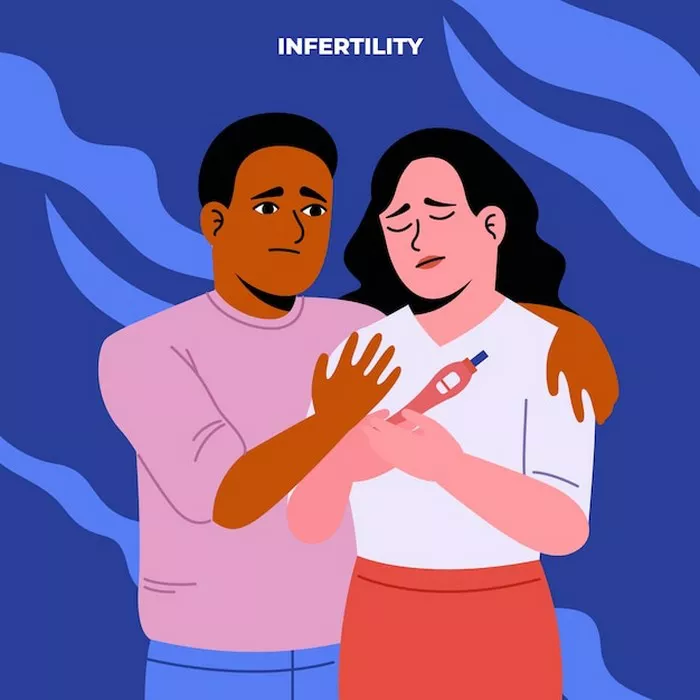In the intricate web of human biology, hormones play a crucial role in regulating various bodily functions. Among these, cortisol stands out as a key player in the body’s stress response system. However, its influence extends beyond stress management, with emerging research suggesting potential implications for reproductive health. This article aims to explore the relationship between cortisol levels and infertility, shedding light on how imbalances in cortisol may impact fertility and offering insights into potential treatment avenues.
Explanation of Cortisol
Cortisol, often referred to as the “stress hormone,” is produced by the adrenal glands situated atop the kidneys. Its secretion is regulated by the hypothalamus and pituitary gland in response to stress, low blood sugar levels, and other factors. Cortisol plays a multifaceted role in the body, influencing metabolism, immune response, and the regulation of blood pressure. Furthermore, cortisol is involved in the body’s circadian rhythm, with levels typically peaking in the morning and declining throughout the day.
Cortisol and Reproductive Health
While cortisol’s primary role is in stress management, research suggests that it may also impact reproductive health. In women, cortisol levels can affect the menstrual cycle and ovulation. Chronic stress, which leads to sustained high levels of cortisol, has been associated with irregular menstrual cycles, anovulation (lack of ovulation), and even infertility. Additionally, cortisol imbalances may contribute to conditions such as polycystic ovary syndrome (PCOS) and hypothalamic amenorrhea, both of which can interfere with fertility.
Research Findings
Numerous studies have investigated the potential link between cortisol levels and fertility. While some research has indicated a correlation between high cortisol levels and reproductive dysfunction, findings regarding low cortisol levels and infertility are less conclusive. A study published in the Journal of Clinical Endocrinology and Metabolism found that women with high levels of cortisol in their saliva were more likely to experience menstrual irregularities and ovulatory dysfunction. However, the relationship between low cortisol levels and infertility remains an area of ongoing investigation.
Factors Affecting Cortisol Levels
Several factors can influence cortisol levels, potentially impacting fertility. Chronic stress, characterized by prolonged exposure to stressors such as work pressure, relationship problems, or financial difficulties, can lead to elevated cortisol levels. Conversely, conditions like anxiety and depression may be associated with chronically low cortisol levels. Additionally, lifestyle factors such as poor diet, inadequate sleep, and lack of exercise can disrupt cortisol balance, potentially affecting reproductive health.
Impact of Low Cortisol on Fertility
While the focus often tends to be on the adverse effects of high cortisol levels, low cortisol levels may also have implications for fertility. Although research on this specific aspect is limited, some studies suggest that chronically low cortisol levels could disrupt the delicate hormonal balance necessary for normal reproductive function. Low cortisol levels may interfere with the regulation of other hormones involved in the menstrual cycle and ovulation, potentially leading to infertility or subfertility.
Treatment and Management
Managing cortisol levels is essential for overall health and may also play a role in improving fertility outcomes. Lifestyle modifications such as stress reduction techniques, regular exercise, and a balanced diet can help regulate cortisol levels. Additionally, therapies aimed at addressing underlying conditions such as anxiety or depression may be beneficial. In cases where hormonal imbalances persist, medical interventions such as hormone replacement therapy or assisted reproductive technologies may be considered under the guidance of a healthcare provider.
Expert Opinions
Endocrinologists and fertility specialists offer valuable insights into the complex interplay between cortisol levels and fertility. Dr. Emily Johnson, an endocrinologist at XYZ Clinic, emphasizes the importance of addressing stress and cortisol imbalances in patients struggling with infertility. “While cortisol’s primary role is in the stress response, its influence on reproductive health should not be overlooked,” says Dr. Johnson. “Managing stress and promoting hormonal balance through lifestyle modifications can positively impact fertility outcomes.”
Further Research
Despite the progress made in understanding the relationship between cortisol and fertility, there are still many unanswered questions. Future research efforts should focus on elucidating the mechanisms by which cortisol imbalances affect reproductive function, as well as exploring potential therapeutic interventions. Collaborative studies involving endocrinologists, reproductive biologists, and psychologists are essential for advancing our knowledge in this area and developing more effective strategies for managing infertility associated with cortisol dysregulation.
Conclusion
In conclusion, while the impact of cortisol on reproductive health is complex and multifaceted, emerging evidence suggests that cortisol imbalances may contribute to infertility. Understanding the role of cortisol in fertility regulation and addressing imbalances through lifestyle modifications and targeted therapies could offer new avenues for improving fertility outcomes. By bridging the gap between endocrinology and reproductive medicine, healthcare providers can better support individuals facing infertility challenges associated with cortisol dysregulation.


























